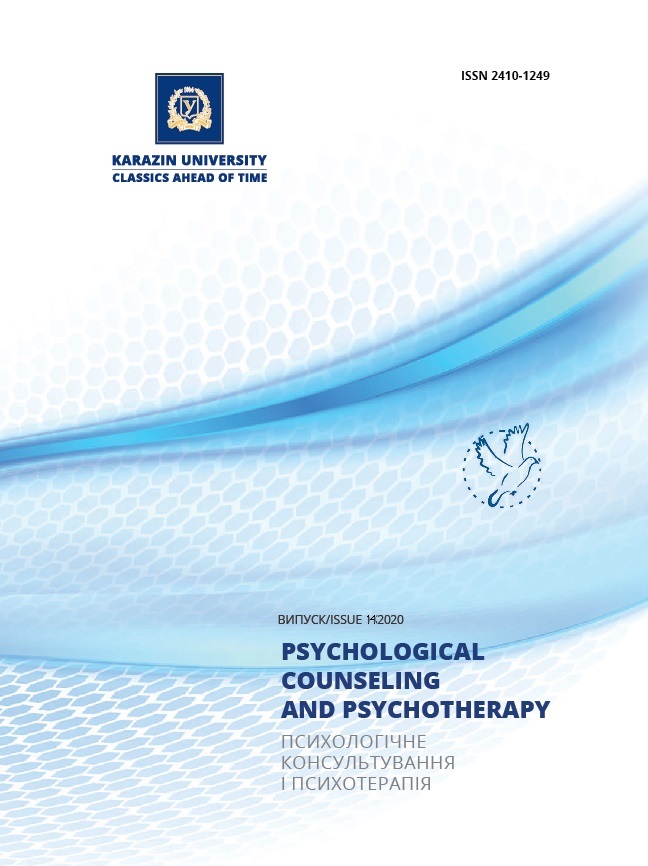Вплив і виклики стосовно надзору в командах паліативного догляду: результати 5-річного дослідження у південному тіролі (італія)
Анотація
Мета: Оцінка клінічного догляду, орієнтованого на результат, для покращення якості медичної допомоги. Дизайн: Ми провели рандомізоване, довготермінове контрольоване дослідження. Загалом у дослідженні брали участь 32 райони охорони здоров’я. Для оцінки втручання в якості показників якості спостереження були зібрані наступні показники: Якість життя (FACT-G, SF12, POS), психологічний стрес, депресія, вигорання (шкали HADS, BDI-II, VAS, HPS), почуття злагодженості (SOC-13), задоволення турботою, спілкуванням та підтримкою з боку пацієнтів та родичів (шкали VAS) та умовами праці (COPSOQ) з боку медсестер та сімейних лікарів. Результати: З 85 підшкал SOC для медсестер (p = 0,017), шкала для сестринської справи SF-12 (p = 0,036) та шкала лікарів загальної практики COPSOQ показали значні відмінності у можливостях розвитку (p = 0,020), лідерство (p = 0,003), соціальна підтримка (p = 0,001) та дух громади (p = 0,024). На другому етапі дослідження були знайдені суттєві відмінності у підшкалах шкали результатів паліативної допомоги (POS) та підшкали тестового інструменту Функціональна оцінка терапії раку - загальне (FACT-G) пацієнтів. Значення задоволеності медсестер та лікарів загальної практики наглядом показали надзвичайно позитивні оцінки як медсестер, так і лікарів загальної практики щодо нагляду. Висновки: Нагляд позитивно впливає на процес паліативної домашньої допомоги. Здається важливим скоригувати кількість нарад з нагляду відповідно до потреб окремої команди, щоб досягти оптимізованої роботи команди.
Завантаження
Посилання
Tuppin, P., Tanguy-Melac, A., Lesuffleur, T. et al. (2019). Intensity of care for cancer patients treated mainly at home during the month before their death: An observational study. Presse Med., 48, 293-306.
Monaco, M.L., Bocchio, R.M., Natoli, G. et al. (2020). Human relationships in patients’ end-of-life: a qualitative study in a hospice ward. Intern Emerg Med., 15, 975 980. https://doi.org/10.1007/s11739-019-02254-6.
McDermid, F., Mannix, J., Peters, K. (2020). Factors contributing to high turnover rates of emergency nurses: A review of the literature. Aust Crit Care, 33(4) 390-396. https://doi.org/10.1016/j.aucc.2019.09.002.
Saravanabavan, L., Sivakumar, M.N., Hisham, M. (2019). Stress and burnout among intensive care unit healthcare professionals in an Indian tertiary care hospital. Indian J. Crit. Care Med. 23(10) 462-466.
Engl, A., Goegele, A., Garber, K., Giacomuzzi, S.M. (2013). Palliativ-Pflege in Südtirol Ergebnisse aus der Pilotstudie – Vorbereitung für landesweite Untersuchung. ZdS Krebshilfe, 3, 18-20.
Garber, K. (2010). Entwurf eines systemischen Selbst-Modells für Therapie, Coaching und Beratung. Reihe Selbst und Selbstregulation. Dresden: Jacobs Verlag.
Garber, K, Giacomuzzi, S. (2009). Short period supervision and coaching regarding the use of the 5-vector self-model. Paper presented at: XVII World International Family Therapy Association (IFTA) Congress. Portorož, Slovenia.
Langmaack, B. (1994). Themenzentrierte Supervision: einführende Texte rund ums Dreieck. Kleine Bibliothek der Psychologie. Weinheim: Psychologie-Verl.-Union.
Cella, D., Tulsky, D.S., Gray, G., et al. (1993). The Functional Assessment of Cancer Therapy scale: development and validation of the general measure. J Clin Oncol., 11, 570-579.
Yost, K.J., Thompson, C.A., Eton, D.T., et al. (2013). The Functional Assessment of Cancer Therapy – General (FACT-G) is valid for monitoring quality of life in non-Hodgkin lymphoma patients. Leuk Lymphoma. 54(2), 290 297.
Stern, B., Socan, G., Rener-Sitar, K., et al. (2019). Validation of the Slovenian Version of Short Sense of Coherence Questionnaire (SOC-13) in Multiple Sclerosis Patients. Zdr Varst., 58(1), 31-39.
Burr, H., Berthelsen, H., Moncada, S., et al. (2019). The Third Version of the Copenhagen Psychosocial Questionnaire. Saf Health Work, 10(4), 482-503.
Nuebling, M., Seidler, A., Garthus-Niegel, S., et al. (2013). The Gutenberg Health Study: measuring psychosocial factors at work and predicting health and work-related outcomes with the ERI and the COPSOQ questionnaire. BMC Public Health, 13, 538.
Ware, J.E., Kosinski, M., Keller, S.D. (1998). SF-12: how to score the SF-12 physical and mental health summary scales. Lincoln, RI: Quality Metric Incorporated.
Rugno, F.C., Carlo, M.M.R. do P.D. (2016). The Palliative Outcome Scale (POS) applied to clinical practice and research: an integrative review. Rev Lat Am Enfermagem., 24, e2764. https://doi.org/10.1590/1518-8345.0993.2764.
Wentlandt, K., Krzyzanowska, M.K., Swami, N., et al. (2012). Referral practices of oncologists to specialized palliative care. J. Clin. Oncol., 30(35), 4380-4386.
Herrmann, C. (1997). International experiences with the Hospital Anxiety and Depression Scale: a review of validation data and clinical results. J Psychosom Res. 42, 17 41.
Montazeri, A., Vahdaninia, M., Ebrahimi, M., et al. (2003). The Hospital Anxiety and Depression Scale (HADS): translation and validation study of the Iranian version. Health Qual Life Outcomes., 1, 14. https://doi.org/10.1186/1477-7525-1-14.
Hobkirk, A.L., Starosta, A., De Leo, J., et al. (2015). Psychometric Validation of the BDI-II among HIV-Positive CHARTER Study Participants. Psychol Assess., 27(2), 457 466.
Beck, A.T., Steer, R.A., Brown, G.K. (1996). Manual for the Beck Depression Inventory-II. San Antonio, TX: Psychological Corporation.
Sung, Y.T., Wu, J.S. (2018). The Visual Analogue Scale for Rating, Ranking and Paired-Comparison (VAS-RRP): A new technique for psychological measurement. Behav Res Methods., 50(4), 1694-1715.
Gräßel, E., Adabbo, R. (2011). Perceived burden of informal caregivers of a chronically ill older family member. Gero Psych., 24(3), 143-54.
World Health Organization, (2019). Retrieved from URL: https://www.who.int/cancer/palliative/definition/en/
Tatum, P.E., Mills, S.S. (2020). Hospice and Palliative Care: An Overview. Med Clin North Am., 104(3), 359-373.
Huo, T., Guo, Y., Shenkman, E., Muller, K. (2018). Assessing the reliability of the short form 12 (SF-12) health survey in adults with mental health conditions: a report from the wellness incentive and navigation (WIN) study. Health Qual Life Outcomes., 16(1). https://doi.org/10.1186/s12955-018-0858-2.
Kavalieratos, D., Corbelli, J., Zhang, D., et al. (2016). Association Between Palliative Care and Patient and Caregiver Outcomes. A Systematic Review and Meta-analysis. JAMA, 316(20), 2104-2114.
Hui, D., Hannon, B., Zimmermann, C., Bruera, E. (2018). Improving Patient and Caregiver Outcomes in Oncology: Team-Based, Timely, and Targeted Palliative Care. CA Cancer J Clin., 68(5), 356-376.
Chang, W.P. (2018). How social support affects the ability of clinical nursing personnel to cope with death. Appl Nurs Res., 44, 25-32.
Llobera, J., Sansó, N., Ruiz, A., et al. (2017). Strengthening primary health care teams with palliative care leaders: protocol for a cluster randomized clinical trial. BMC Palliat Care. 17(1), 4. https://doi.org/10.1186/s12904-017-0217-9.








